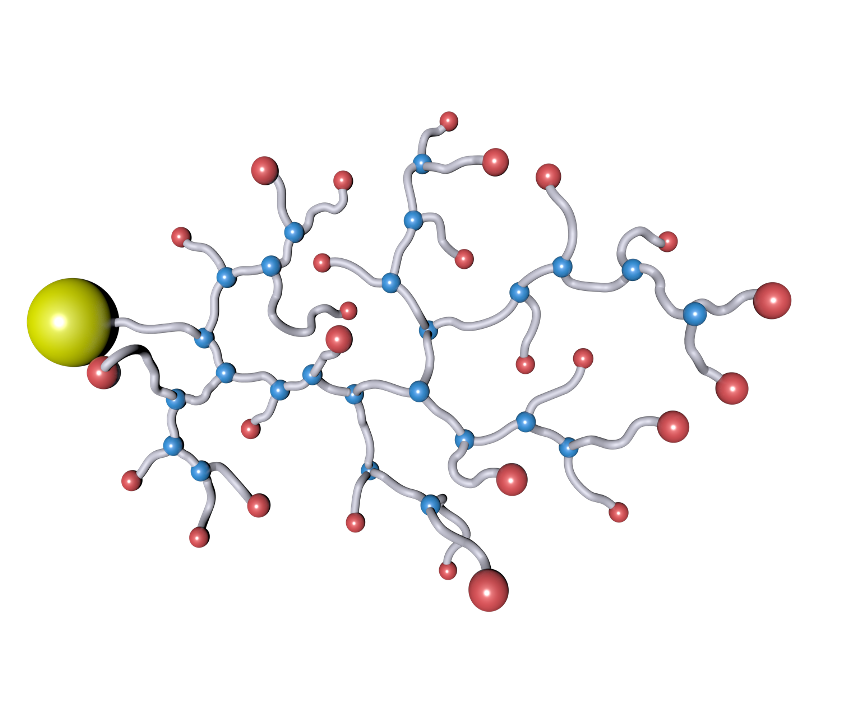Discovering the Varied Applications and Benefits of Polymers in Different Industries
Polymers, with their diverse range of properties and performances, have come to be crucial in various industries, each gaining one-of-a-kind gain from their application. Polymers. From enhancing safety and performance in the automotive market to transforming medical devices in the health care industry, polymers play a pivotal role. Moreover, their eco-friendly nature is modifying the landscape of sustainability methods. As we look into the midsts of polymers in electronic devices, we discover innovative developments, while their structural integrity changes the realm of construction and framework. The prevalent impact of polymers across industries is a testament to their versatility and flexibility, shaping the future of countless fields.
Automotive Sector Applications
Polymers play a crucial function in boosting the performance and resilience of numerous parts within the auto market. These functional products are extensively used in the manufacturing of different components, varying from indoor elements to under-the-hood applications. One popular use polymers in the automotive sector is in the manufacturing of light-weight parts. By replacing conventional metal get rid of polymer-based choices, vehicles can achieve enhanced gas performance without jeopardizing on toughness or safety.

Healthcare Industry Advantages
In numerous health care applications, the benefits of using polymers are extensively recognized for their varied series of valuable residential properties. Polymers play a vital role in the healthcare industry due to their adaptability, biocompatibility, and cost-effectiveness. One of the primary advantages of polymers in health care is their ability to be tailored to specific demands, such as adaptability, toughness, and biodegradability, making them ideal for a vast variety of clinical applications.
Polymer-based materials are thoroughly used in medical tools, such as catheters, implants, prosthetics, and medication shipment systems, as a result of their biocompatibility and capability to imitate all-natural cells. These products can minimize the danger of allergic responses or beings rejected, boosting patient security and results. Furthermore, polymers are lightweight, making them suitable for wearable clinical gadgets and ensuring individual convenience.
Moreover, polymers make it possible for the growth of cutting-edge therapy techniques, such as hydrogels for tissue design and nanocomposites for targeted medicine distribution. Their ease of processing and sanitation makes them crucial for keeping high criteria of hygiene in health care setups. On the whole, the diverse advantages of polymers add dramatically to developments in clinical modern technology and individual treatment.
Ecological Benefits of Polymers

Furthermore, polymers can contribute to power cost savings as a result of their light-weight nature. In sectors such as transport, light-weight polymer materials can assist decrease gas consumption and greenhouse gas emissions. Additionally, polymers can enable the advancement of energy-efficient items such as insulation products that enhance power preservation in structures.
Furthermore, polymers play a critical duty in reducing water air pollution. The usage of polymer-based filtering systems can properly get rid of pollutants and contaminants from wastewater, securing water resources and environments. In general, the ecological benefits of polymers make them important properties in advertising sustainability and eco-friendly practices across various markets.
Polymers in Electronics and Modern Technology
Taking into consideration the boosting need for innovative and lasting remedies in Read Full Article modern-day industries, the combination of advanced polymer modern technologies in the world of electronics and modern technology has actually become a crucial approach for driving effectiveness and efficiency. Polymers have actually transformed the electronics market by allowing the webpage production of lighter, much more versatile, and resilient digital devices. From mobile phones to clinical devices, polymers play a critical duty in enhancing product style and functionality.
One considerable advantage of polymers in electronic devices is their shielding homes, which aid protect delicate digital components from environmental aspects and electric interference. Additionally, polymers are vital in the advancement of versatile display screens, wearable modern technology, and printed electronic devices, using countless opportunities for developing smart and interconnected tools.
Furthermore, using polymers in electronic packaging has actually resulted in innovations in miniaturization and thermal monitoring, enhancing the overall performance and reliability of digital systems. As innovation continues to advance, the convenience and adaptability of polymers will most certainly drive further innovation in the electronic devices industry, forming the future of modern technology.
Function of Polymers in Building And Construction and Framework
The combination of advanced polymer materials in construction and facilities tasks has actually reinvented the way frameworks are designed and integrated in contemporary times. Polymers supply many benefits in the construction sector because of their flexibility, sturdiness, and cost-effectiveness. One key function of polymers in building is their usage in coatings and sealers, supplying defense versus environmental variables such as wetness, UV radiation, and deterioration. Additionally, polymers are used in the manufacturing of lightweight and high-strength composite materials, enhancing the architectural honesty of buildings while lowering general weight.
Furthermore, polymers play a critical role in sustainable building techniques by enabling the development of energy-efficient structures. Protecting products made from polymers aid manage indoor temperature levels, reducing the need for heating and cooling systems and eventually reducing power intake - Polymers.
Conclusion
In final thought, polymers play a crucial role in various industries such as automobile, health care, environmental, electronics, and building. Their flexible properties make them valuable in creating innovative solutions and items. From enhancing fuel effectiveness in cars to improving medical devices, polymers offer numerous benefits. In addition, their influence on minimizing waste and advertising sustainability highlights their significance in modern applications. The widespread usage of her comment is here polymers shows their significant payment to advancing technology and improving lifestyle.